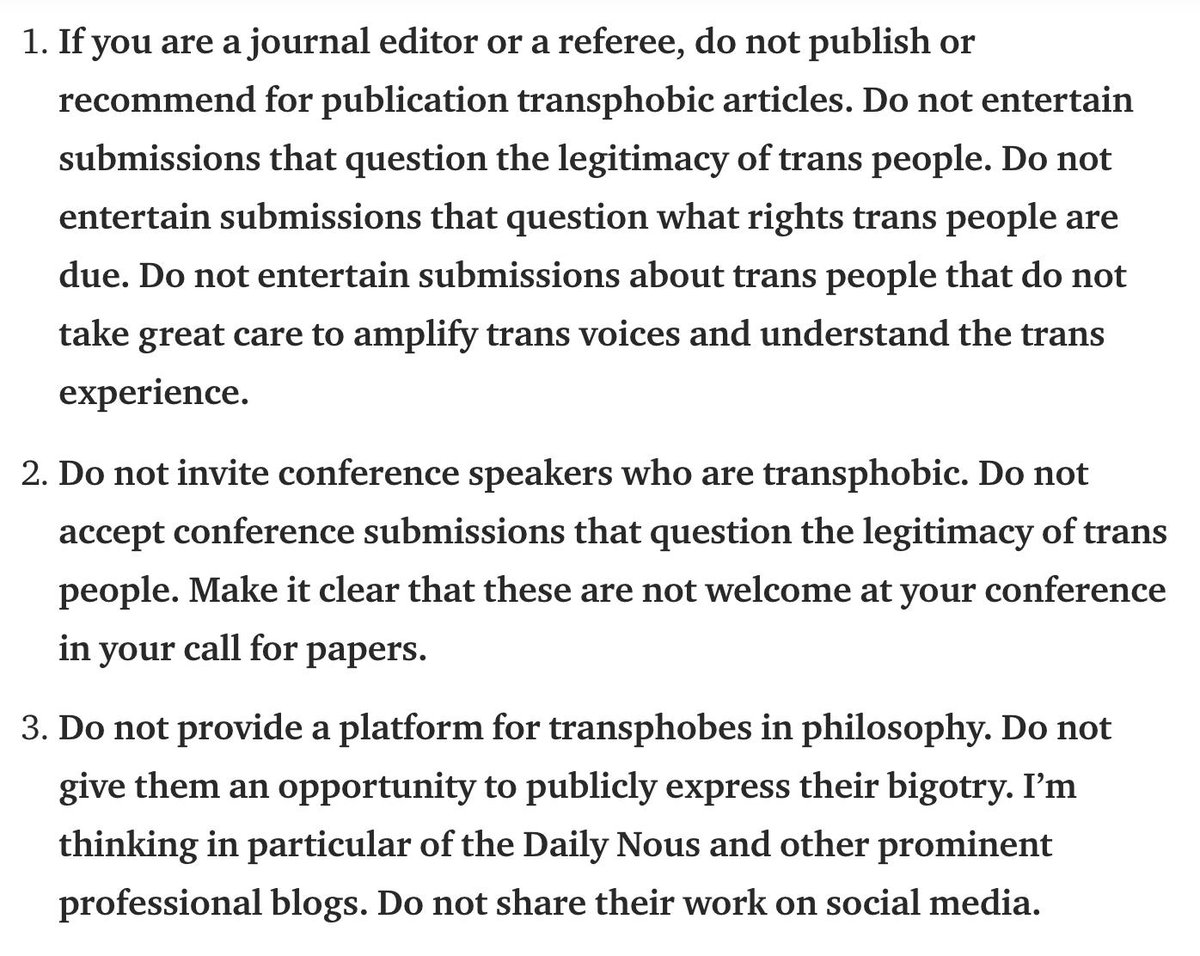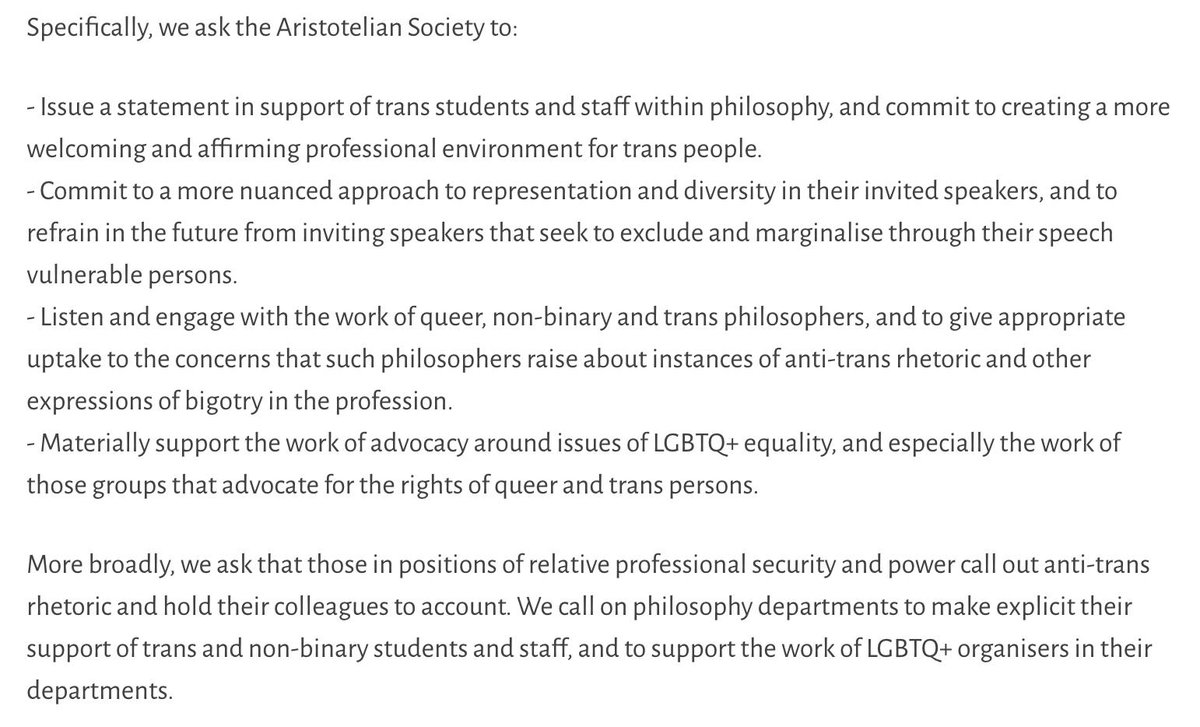"The women are up to something in Convocation", a don at St John's was heard to say to his colleagues; "we have to go and vote them down."
They accept that the categories "girl" and "woman" can be extended to include male people in some cases, and for some purposes.
Yes, this happens!
And while usually the meanness is not QUITE at the level of comparing the speech of a colleague to the defense of war criminals at Nuremberg, no doubt it feels differently to some.


I also share the desire for more consistently charitable and collegial conversation about these and other sensitive topics.















